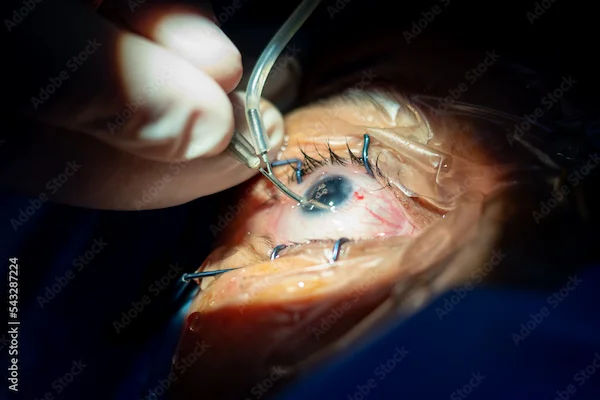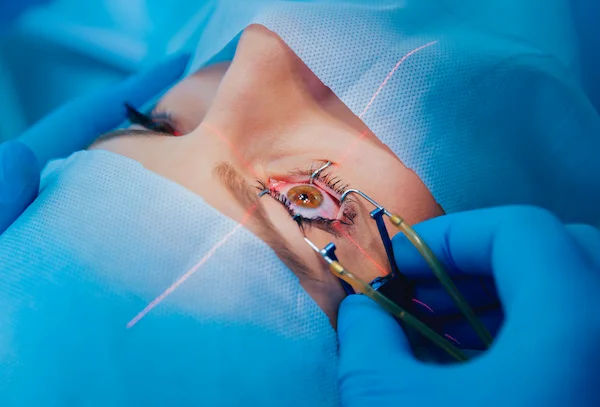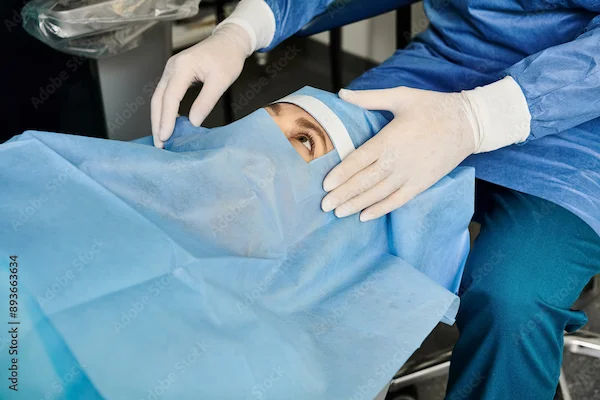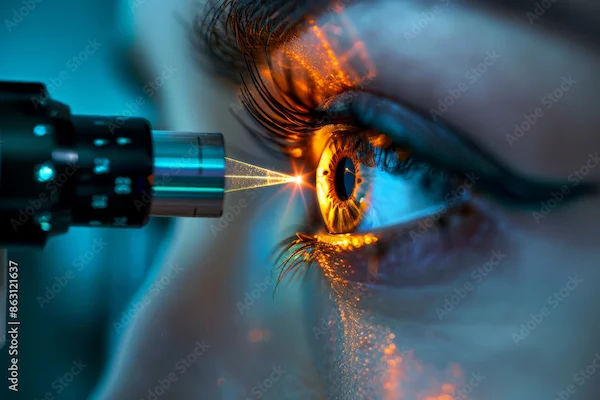Dos And Don'ts After LASIK Eye Surgery
Discover the essential dos and don’ts after LASIK eye surgery to ensure a smooth recovery and protect your vision.

Written by
Last updated on 4th Jul, 2025

Introduction
If you’ve recently undergone LASIK eye surgery or are planning to, congratulations on taking a step toward clearer vision! LASIK is a safe and effective procedure, but proper aftercare is crucial for a smooth recovery and the best results. Here’s a simple, friendly guide to help you navigate the dos and don’ts after LASIK.
What is LASIK?
LASIK (Laser-Assisted In Situ Keratomileusis) is a popular laser eye surgery that corrects vision problems like nearsightedness, farsightedness, and astigmatism. The procedure reshapes the cornea to improve how light enters the eye, reducing or eliminating the need for glasses or contact lenses.
Why Post-Surgery Care Matters
Your eyes need time to heal after LASIK. Following your doctor’s instructions carefully helps prevent complications, speeds up recovery, and ensures long-term success.
Consult Top Specialists for Personalised Health Advice
Dos After LASIK Eye Surgery
Here are some important things you should do after LASIK to help your eyes heal properly and ensure the best results.
1. Follow Your Doctor’s Instructions
Your surgeon will provide specific post-op care guidelines. Stick to them, including using prescribed eye drops to prevent infection and dryness.
2. Rest Your Eyes
Take a nap or keep your eyes closed for a few hours after surgery.
Avoid reading, screens, or any activity that strains your eyes for at least 24 hours.
3. Wear Protective Eyewear
Use the provided eye shields while sleeping for the first few nights to avoid rubbing your eyes.
Wear sunglasses outdoors to protect your eyes from sunlight, wind, and dust.
4. Keep Your Eyes Moist
Use artificial tears, if recommended, to prevent dryness, a common side effect.
Stay hydrated by drinking plenty of water.
5. Attend Follow-Up Appointments
Visit your doctor as scheduled—usually within 24-48 hours after surgery and then periodically—to monitor healing.
6. Maintain Good Hygiene
Wash your hands before touching your eyes or applying eye drops.
Avoid getting soap, shampoo, or water directly in your eyes while showering for the first few days.
7. Eat a Healthy Diet
Include foods rich in vitamins A, C, and E, like carrots, leafy greens, and citrus fruits, to support eye health and healing.
Don’ts After LASIK Eye Surgery
Equally important are the things you should avoid—these can delay healing or cause complications if not followed carefully.
1. Don’t Rub Your Eyes
Rubbing can dislodge the corneal flap, delaying healing or causing complications. If your eyes feel itchy, use lubricating drops instead.
2. Avoid Strenuous Activities
Skip heavy exercise, swimming, or contact sports for at least a week.
Avoid bending over or lifting heavy objects for a few days to prevent pressure on the eyes.
3. No Eye Makeup or Creams
Avoid makeup, lotions, or creams near the eyes for at least a week to prevent irritation or infection.
4. Stay Away from Dust and Smoke
Avoid smoky environments, dusty areas, or swimming pools for at least a week.
Keep pets away from your face to prevent accidental scratches.
5. Limit Screen Time
Reduce phone and computer use for the first 1–2 days. If you must use screens, follow the 20-20-20 rule—every 20 minutes, look 20 feet away for 20 seconds.
6. Don’t Drive Immediately
Your vision may be blurry right after surgery. Wait until your doctor confirms it’s safe to drive—usually within 24-48 hours.
7. Avoid Alcohol and Smoking
Alcohol can dehydrate you and slow healing.
Smoking or secondhand smoke can irritate your eyes and delay recovery.
How Long Does Recovery Take?
Most people notice improved vision within 24-48 hours, but full recovery takes a few weeks. You may experience:
Mild discomfort or dryness
Temporary glare or halos around lights at night
Slight blurriness that improves over time
If symptoms worsen, contact your doctor immediately.
Tips for Long-Term Eye Health
Even after recovery, a few simple habits can help maintain your vision and eye comfort in the long run.
Wear UV-protected sunglasses outdoors.
Use lubricating drops if dryness persists.
Get regular eye check-ups to monitor vision changes.
Follow a balanced diet for overall eye health.
When to Consult a Doctor?
While LASIK is generally safe, contact your surgeon if you experience:
Severe pain or discomfort
Sudden vision loss
Excessive redness or discharge
Persistent dryness or irritation
If you need expert advice or a follow-up consultation, you can easily book an appointment with an eye specialist on Apollo 24|7.
Final Thoughts
LASIK can be life-changing, but proper aftercare ensures the best results. By following these simple dos and don’ts, you’ll protect your eyes and enjoy clear vision sooner.
Stay patient, follow your doctor’s advice, and soon, you’ll be seeing the world with newfound clarity!
Consult Top Eye Specialists
Consult Top Specialists for Personalised Health Advice
Dr. S Venkateswaran
Ophthalmologist
35 Years • MBBS, PGD (OPTHALMOLOGY)
Tiruvannamalai
Shiva Eye And General Hospital, Tiruvannamalai

Dr Rajesh Rastogi
Ophthalmologist
33 Years • MBBS, MS Ophthalmology
New Delhi
Rotary Diabetic Centre, New Delhi
Dr. V.chittibabu
Ophthalmologist
30 Years • MBBS, MS
Vellore
Krupa Eye Clinic, Vellore

Dr. Sneha T Khurana
Ophthalmologist
9 Years • MBBS, MS Ophthalmology
Gurugram
GS multispeciality clinic, Gurugram
Dr. Harshavardhan Reddy
Ophthalmologist
3 Years • MBBS , MS (Ophthalmology)
Hyderabad
Ram Dev Rao Hospital, Hyderabad
Consult Top Eye Specialists
Dr. S Venkateswaran
Ophthalmologist
35 Years • MBBS, PGD (OPTHALMOLOGY)
Tiruvannamalai
Shiva Eye And General Hospital, Tiruvannamalai

Dr Rajesh Rastogi
Ophthalmologist
33 Years • MBBS, MS Ophthalmology
New Delhi
Rotary Diabetic Centre, New Delhi
Dr. V.chittibabu
Ophthalmologist
30 Years • MBBS, MS
Vellore
Krupa Eye Clinic, Vellore

Dr. Sneha T Khurana
Ophthalmologist
9 Years • MBBS, MS Ophthalmology
Gurugram
GS multispeciality clinic, Gurugram
Dr. Harshavardhan Reddy
Ophthalmologist
3 Years • MBBS , MS (Ophthalmology)
Hyderabad
Ram Dev Rao Hospital, Hyderabad


_0.webp)

